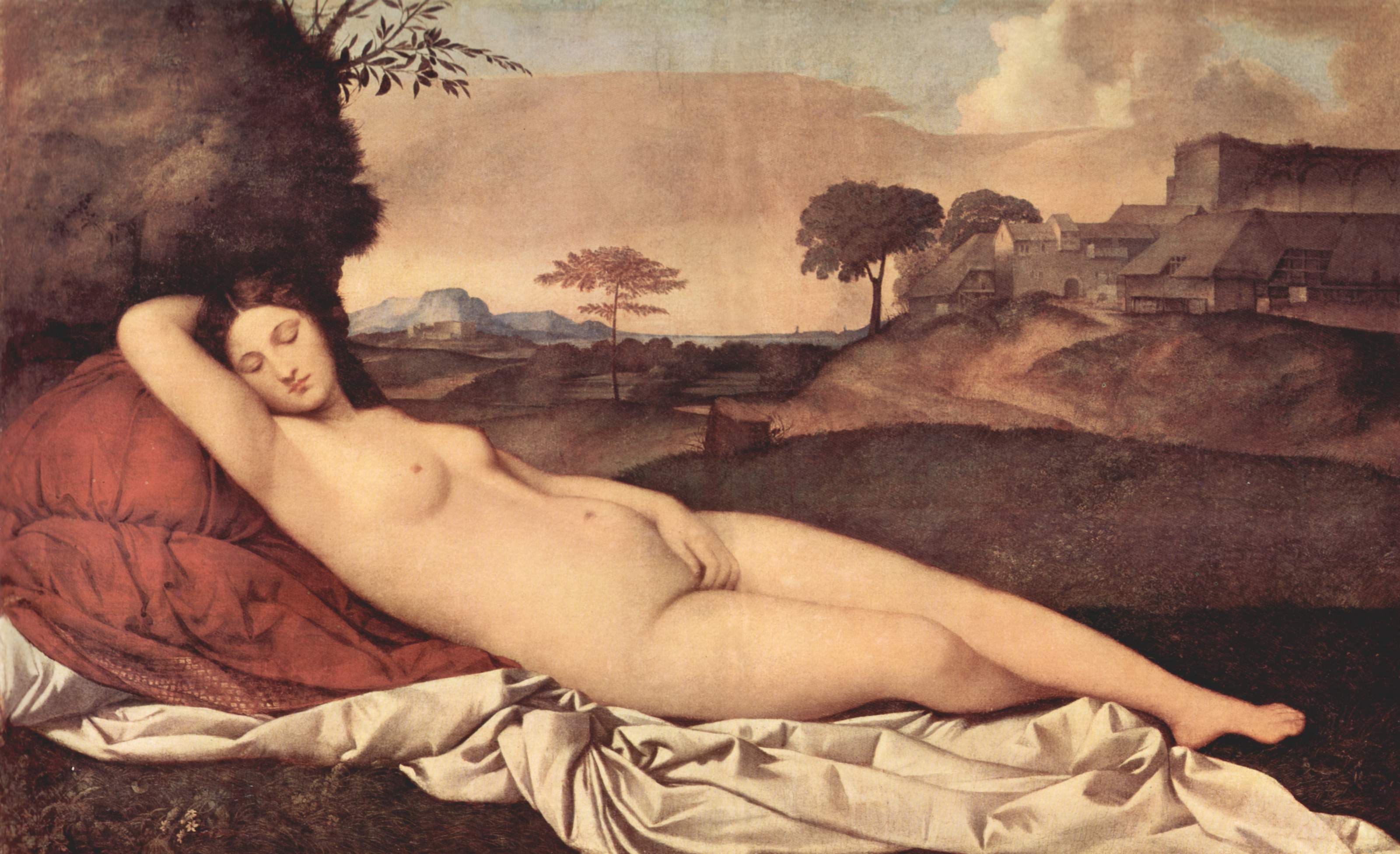Welcome to installment number two in my Recommended Reading series. This one concerns theft, flight sims, survival horror, tension and considers the Sims as an RPG. So do read on.
Over at
Experience Points, Jorge Albor muses about the topic of piracy in video games. This is not the kind of piracy that you are probably thinking of. Instead, Albor is referring to the theft of concepts as espoused by David Shields. This technique has been utilized with great success in a variety of different mediums. For instance, in music, it can take the form of sampling or field recordings. Albor seems somewhat ambivalent about this, however I endorse it completely. I think that theft is an essential component of art. Or, as an art history professor once remarked, "If you're not borrowing from other artists, then you're not a good artist." Indeed, this style of plagiarism has a long history in art. The images below will illustrate this point:
 |
| Giorgione, Sleeping Venus (1510) |
 |
Titian, Venus of Urbino (1538)
|
 |
| Édouard Manet, Olympia (1863) |
The first is Giorgione's
Sleeping Venus (I prefer the title
Reclining Venus as the woman in the painting is most certainly masturbating, not sleeping). Now compare the woman's pose with that of the woman in the second painting, Titian's
Venus of Urbino. Titian was an associate of Giorgione's and even completed the background in
Sleeping Venus after Giorgione's premature death. Titian clearly had Giorgione's piece in mind almost three decades later when he was commissioned to do the painting that became
Venus of Urbino. However, Titian was not the only artist stealing from Giorgione, as his 'Venus pose' was a common motif in Venetian art with several less established artists copping the master's style. In fact, Giorgione's immediate influence was so great that it complicates efforts to verify which paintings are actual Giorgiones and which ones are the work of his various imitators. Over three centuries later, Édouard Manet brought the 'Venus pose' back with his
Olympia. Manet, however, utilizes the pose differently than Titian, as his is a direct reference to the Titian painting and assumes this knowledge of the viewer. The Titian painting is all about virginal purity, hence the dog, and fertility, hence the flowers and the location of her left hand (purity and fertility being the most desirable traits in a female spouse at the time, other than power). Manet, however, takes this canonized image and turns it on its head, opting to depict a prostitute waiting on her client for a fleeting encounter rather than a new bride awaiting a lifetime with her groom. (side note: this is not the only time Manet used Giorgione and Titian as source material.) Using a common frame of reference allowed Manet's painting to both scandalize and resonant with the public, pushing forth stark reality in the guise of Renaissance idealism. The impact of this painting was greater because of this frame of reference. In other words, the painting succeeds because Manet stole from Titian, as Titian did from Giorgione. So, in conclusion, artistic theft is a good thing, something that the art world accepted long ago, and I think that it is time that other mediums started catching up. Besides, everyone knows that originality is a myth. Sorry for the art stuff, now going back on topic.
I also recommend Tim Stone's article on Flight Sims, wherein he interviews the genre itself, offering insights on its past successes, decline and future. His accompanying images alone are worth the click. For an overview of a more popular genre, turn to Jon Wilcox's "History of Survival Horror Games," written shortly after Alan Wake was released. If you would rather read something that is more about game mechanics than a genre, there is John Rose's look at how tension is used in video games. Lastly, Troy Goodfellow examines how The Sims functions as an RPG. That is, much better than the majority of games that are considered to be RPGs but, instead of 'role playing,' offer predetermined roles and outcomes. This article is especially interesting in light of the upcoming Sims title,
The Sims Medieval.
Contemporary
Theft and Recreation by Jorge Albor
Multiple Roleplaying Disorder by Troy Goodfellow
Addressing Conflict: Tension and Release in Games by John Rose
Stale Air And Stolen Thunder by Tim Stone
The History of Survival Horror Games by Jon Wilcox






No comments:
Post a Comment